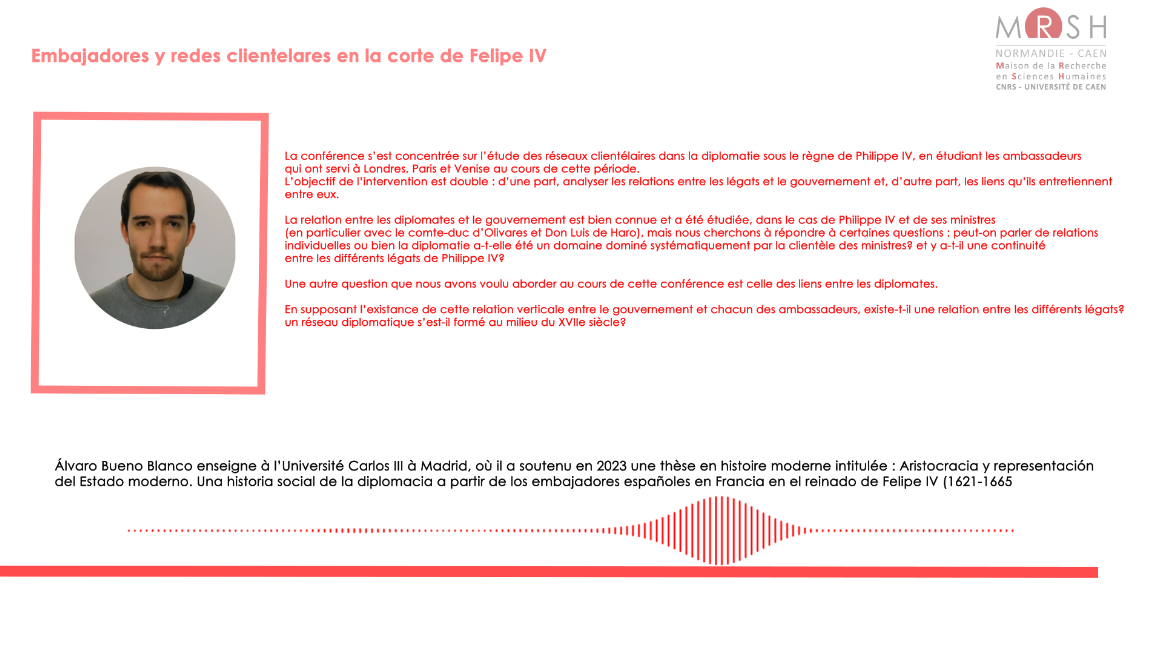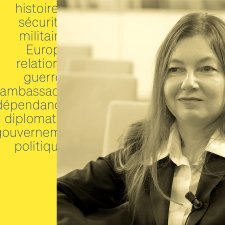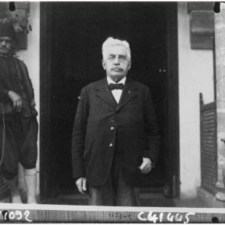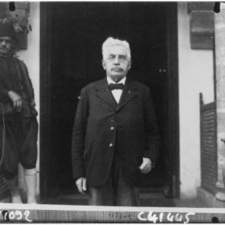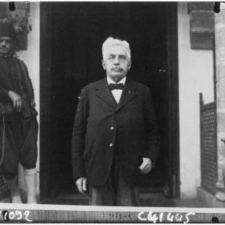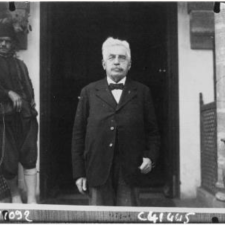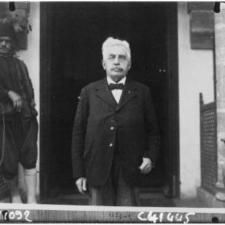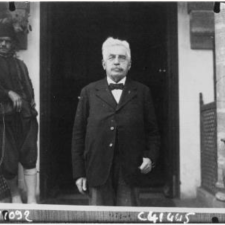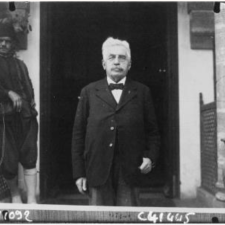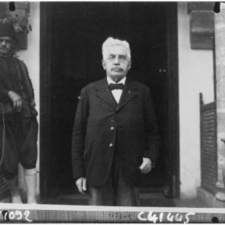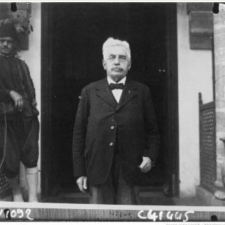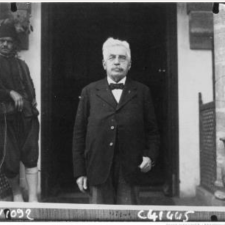Notice
Major assets for Turkish diplomacy in the Caucasus and question of the "background
- document 1 document 2 document 3
- niveau 1 niveau 2 niveau 3
Descriptif
2d PANEL : Diffusion, circulation and backfires of Turkey’s influence
Présentation 4.
Elshan MUSTAFAYEV / Sciences Po Lyon – IFEA : “Major assets for Turkish diplomacy in the Caucasus and question of the "background"
This paper aims to examine the relevance of the soft power concept for interpretation of Turkey’s foreign policy towards one of its neighboring region. The unpredictable disintegration of the Soviet Union put Turkey in front of a new regional strategic context. Criticized at the same period in the west for the lack of democracy and for the human rights abuses, Turkish political system became paradoxically an attraction, “a source of inspiration to imitate” or a model for this new geopolitical environment. Analyze the impact of the Turkish political values in the region allow us to suppose that it did not constitute an enormous asset for its foreign policy in this region. Apart from its more advanced political system than Russia and Iran, the starting point for Turkey’s future in the region was the linguistic and complex cultural kinship with six newly independent republics. Cultural diplomacy was supposed also to constitute an effective tool leading to further success of Turkey in this region’s economy, which was passing throughout economic transformation after their experience in communist system. Turkish dynamic economy, as a resource both to hard power and to soft power depending on the context according to Nye’s definition, constituted a source of attraction for many countries of the region, reinforced interestingly in its turn the legitimacy of the cultural “intervention” of Turkey, so forming a sort of “virtuous circle”. In parallel to this process that takes place inside of Turkey, the rise of the non-state actors both in the economic and in the cultural field and the charge, they took, of course indirectly, in the realization of foreign policy goals created more or less autonomous sphere out of state control in Turkey. It sometimes helps Turkish foreign policy goals in Caucasus (Turkish Private High Schools, private entrepreneurs etc.), in some cases could harm it (Chechen, Çerkez and Abkhaz Diasporas activities) or add a value or a reflection to state’s regional vision (Turkish Civil society’s and economic groups’ links with Armenia). In this sense of power shift process, there are a huge number of special different trends at the micro level, which create their own autonomous interactions with its neighborhood and that heterogeneous character don’t permit us to gather together under the same explicative notions, such as the efficiency of Turkish Soft power.
Dans la même collection
-
Regional networks in an emerging art market area : positionning Istanbul as a Hub
Analyze Istanbul art world’s recent positioning as a point of attraction for neighboring countries’ art scenes
-
Magnificent Century: Turkish Soap Opera as a Source of Soft Power
Bowen ÇolakoğluKimberley3rd PANEL : Diversity of the Turkish soft power's vectors Kimberley BOWEN ÇOLAKOĞLU / Istanbul Technical University : “Magnificent Century: Turkish Soap Opera as a Source of Soft Power” Suleiman
-
Turkish series exportation market and its counterflow ‘soft power’ effects
ParisJulienThrough the example of Turkish series production and their international diffusion this paper aims to question the use and limits of the concept of soft power, and more precisely the role given to
-
Networks of Influence: Reconceptualising Soft Power
SadriuBehar2d PANEL : Diffusion, circulation and backfires of Turkey’s influence Présentation 5. Behar SADRIU / School of Oriental and African Studies – University of London : “Networks of Influence:
-
Turkish sport diplomacy as a tool for a renewed power ? Success and limits to Turkish “soft power"
PoloJean-François3rd PANEL : Diversity of the Turkish soft power's vectors Présentation 5. Jean-Francois POLO / Sciences Po Rennes - CRAPE - Galatasaray University : "Turkish sport diplomacy as a tool for a
-
An illusionary ‘power of seduction’: an assessment of Turkey’s soft power capacity in the Arab World
JabbourJana J.3rd PANEL : Diversity of the Turkish soft power's vectors Présentation 2. Janna JABBOUR / Sciences Po – CERI : "An illusionary ‘power of seduction’: an assessment of Turkey’s soft power capacity
-
The Amity International school network in Cameroon
Nguefack TsafackCharly Delmas1st PANEL : Private actors producing and receiving Turkish soft power : relationships to the Turkish state Présentation 1. Charly DELMAS TSAFACK (International relations institute of Cameroon),
-
The Hizmet Movement as a softpower tool in the Kurdistan Region of Iraq: between foreign policy an…
BenhaïmYohanan2d PANEL : Diffusion, circulation and backfires of Turkey’s influence Présentation 2. Yohanan BENHAIM / Paris 1 University – IFEA :"The Hizmet Movement as a softpower tool in the Kurdistan Region
Sur le même thème
-
Embajadores y redes clientelares en la corte de Felipe IV
La conferencia se centraba en el estudio de redes clientelares existentes en la diplomacia durante el reinado de Felipe IV, estudiando los embajadores que, en ese período, sirvieron en Londres, París
-
Oksana Mitrofanova - France-Ukraine
MitrofanovaOksanaInterview de Oksana Mitrofanova, dans le cadre de la sortie de son ouvrage : France-Ukraine
-
1.5 : De l’hôtel de Brienne au Commissariat général de la République à Strasbourg : Millerand et le…
SchmauchJoseph1.5 : De l’hôtel de Brienne au Commissariat général de la République à Strasbourg : Millerand et les Alsaciens
-
-
1.10 : Les Millerand : un réseau de sociabilité
GrangeCyril1.10 : Les Millerand : un réseau de sociabilité
-
1.11 : Les Archives Millerand : renaissance d’un inventaire
BarroVivien1.11 : Les Archives Millerand : renaissance d’un inventaire
-
-
-
1.8 : Millerand et les crises des années 30
JankowskiPaul1.8 : Millerand et les crises des années 30
-
1.7 : Millerand et le renouveau des relations avec le Saint-Siège après la Première Guerre mondiale
ZellerPhilippe1.7 : Millerand et le renouveau des relations avec le Saint-Siège après la Première Guerre mondiale
-
1.4 : Millerand et Buat, de la complicité entre le président de la République et le chef de l’Armée
GueltonFrédéric1.4 Millerand et Buat, de la complicité entre le président de la République et le chef de l’Armée
-
1.2 : Millerand, héros oublié du roman national
DumasJean-Philippe1.2 : Millerand, héros oublié du roman national










